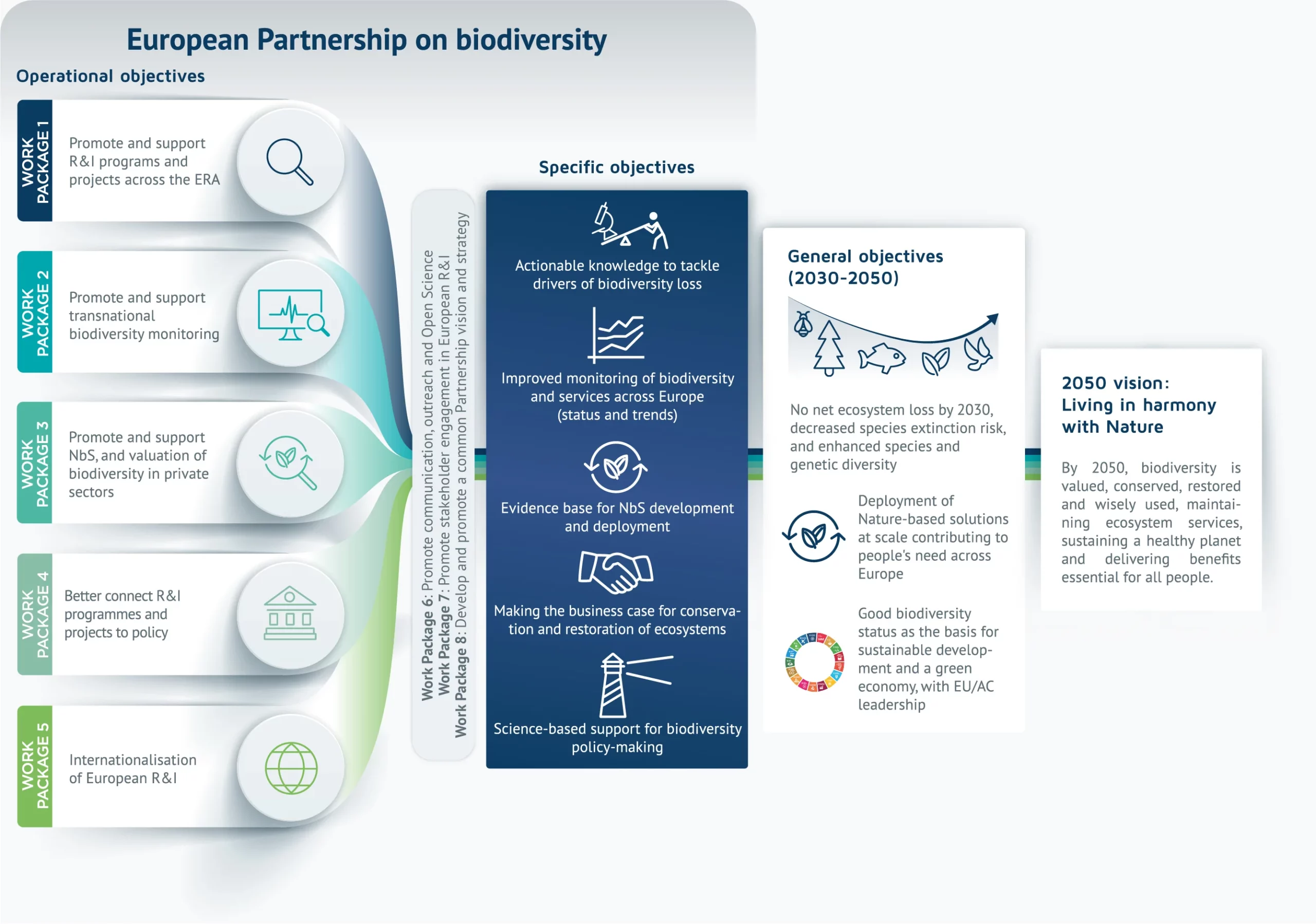Biodiversa+ is committed to the Global 2050 Vision of ‘Living in harmony with nature’ adopted under the Convention on Biological Diversity, and the corresponding EU vision that, by 2050, biodiversity and its benefits to people will be protected, valued and restored (EU Biodiversity Strategy 2030, as part of the European Green Deal).


Three General Objectives
to reach this vision
Ensure no net ecosystem loss by 2030, decrease species extinction risk, and increase species and genetic diversity.
Deploy Nature-based Solutions (NbS) at scale contributing to people’s need.
Make sure that good biodiversity status is fully acknowledged as the basis for sustainable development and a green economy, and EU/Associate Countries leadership is recognized in this context.
To contribute, Biodiversa+ will focus on five Specific Objectives:
- Produce actionable knowledge to tackle the direct and indirect drivers of biodiversity loss and ecosystem degradation;
- Improved monitoring of biodiversity and ecosystem services across;
- Expand and improve the evidence base, accelerate development and wide deployment of Nature-based Solutions (NbS), and assess the efficiency and cost-effectiveness of NbS;
- Making the business case for biodiversity;
- Science-based support for EU, Member States and associated countries policy-making.

These objectives will be reached by implementing the following portfolio of activities:
- Promote and support R&I programs and projects across the European Research Area to tackle specific issues of major importance;
- Promote and support transnational biodiversity monitoring, by building a transnational network of harmonized biodiversity monitoring schemes on common priorities for the Biodiversa+ members, which would reinforce the survey of habitats, protected areas, insects, invasive alien species and health-related biodiversity facets;
- Promote and support design and implementation of NbS, and valuation of biodiversity in some private sectors;
- Better connect R&I programmes and projects to policy, in particular through active fora, brokerage and transfer of science-based knowledge to policy, and the science-based support to policy evaluation and policy design;
- Internationalisation of European R&I, including by increasing R&I collaboration with non-ERA countries, better engagement of European R&I actors with international science-policy platforms (such as IPBES & IPCC), and aligning R&I joint programming with the post-2020 global biodiversity framework.
Doing so, Biodiversa+ will contribute to the EU Biodiversity strategy for 2030, to enable transformative change putting biodiversity on a path to recovery for the benefit of climate and people.